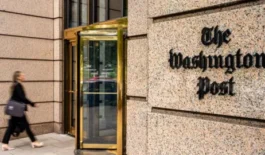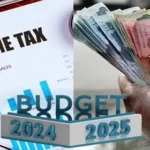(Web Desk Monitoring) — As internet users in Pakistan continue to grapple with widespread connectivity and speed issues, the Wireless and Internet Service Providers Association of Pakistan (WISPAP) has attributed the problems to increased security and surveillance measures, reported by local media. WISPAP warned that these disruptions could have severe economic repercussions.
“It’s a very discouraging situation for our customers […] Many are leaving the smaller ISPs because they cannot sustain the poor service quality anymore. If this continues, we will see a mass exodus of businesses from Pakistan,” said WISPAP Chairman Shahzad Arshad on Thursday.
Arshad revealed that internet speeds have dropped by 30% to 40%, significantly impacting businesses and individuals reliant on stable internet connections. He emphasized that online and electronic-related sectors, crucial to Pakistan’s digital economy, are now struggling to survive due to these slowdowns.
The Prime Minister Shehbaz Sharif-led coalition government and the Pakistan Telecommunication Authority (PTA) have remained silent, despite millions across the country facing difficulties accessing the internet, particularly mobile data in some regions. This disruption is not only affecting citizens’ rights but also causing financial losses, with several online businesses, including e-commerce and ride-hailing services, bearing the brunt of restricted connectivity.
Users of WhatsApp, a widely used messaging app in Pakistan, have reported long delays and failures when uploading and downloading content. The disruption is suspected to be linked to the testing of an internet firewall designed to control social media by filtering out unwanted content.
During an appearance on Geo News’ program ‘Geo Pakistan,’ Farieha Aziz, co-founder of the digital rights organization Bolo Bhi, criticized the government for its lack of transparency on the issue and highlighted the economic impact of the internet slowdown. She referenced the government’s initial denial of X’s suspension, later admitting it was intentional, hinting that “something is cooking” as an in-camera meeting of the Senate Standing Committee on IT and Telecom was scheduled for the day.
Nighat Dad, a lawyer and digital rights activist, also criticized the government’s opacity, warning that such ambiguity fuels misinformation and fake news. Dad argued that the disruptions are not mere technical glitches, but deliberate actions that lack accountability.
The experts underscored the economic damage caused by the internet slowdown, particularly for the gig economy, which relies heavily on internet and social media platforms. The disruption has led to significant losses for freelancers and businesses, with international markets now viewing Pakistan as an unfavorable digital market.
Dad warned that if the government continues down this path, “Digital Pakistan ka Allah hi hafiz” (only God can save Digital Pakistan), criticizing the lack of open dialogue and reliance on unilateral decisions.
The internet firewall in question involves filters to block unwanted content and inspect information from various internet protocol addresses. The system is designed to detect and block propaganda material, with preparations also underway to limit the misuse of Virtual Private Networks (VPNs), potentially requiring citizens to register their VPNs with the PTA.
The ongoing testing of this firewall is believed to be creating bottlenecks in the network, further slowing down internet traffic, and raising concerns about the future of Pakistan’s digital landscape.






























